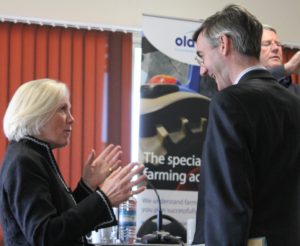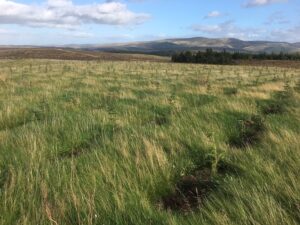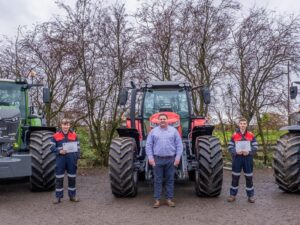 A vote to leave the EU could lead to a collapse of the UK, according to speakers at a Brexit debate hosted by Old Mill accountants last night (14 June). But it could also snatch Great British democracy back from the hands of an unaccountable EU Commission.
A vote to leave the EU could lead to a collapse of the UK, according to speakers at a Brexit debate hosted by Old Mill accountants last night (14 June). But it could also snatch Great British democracy back from the hands of an unaccountable EU Commission.
Held at the Royal Bath & West Showground, the debate attracted more than 300 attendees, and revealed some surprising shifts in voting intentions. According to Old Mill chairman Mike Butler, upon arrival 53% of delegates who voted said they would vote Leave on 23 June, with 25% wanting to remain and 22% undecided. However, after the debate 56% voted to exit, while 33% said remain, and only 11% remained undecided.
“We seem to have been very successful in helping people make up their mind, with slightly more of the undecided persuaded by the remain speakers,” said Mr Butler. “The implications of remain or leave for the farming community are considerable, so it’s vital that voters have as much information as possible, rather than unhelpful political rhetoric and spin.”
Remain campaigner and former MP Tessa Munt said a vote to leave could result in Scotland rethinking a departure from the UK and potentially spark unrest in Ireland due to new border controls. She also warned that it would remove the level playing field between the unified nations and urged voters to consider what was likely to happen to Defra funding without the EU. “Defra is the smallest government department and it is not protected from spending cuts: Will it be able to go to the chancellor and get that money?”
However, Michael Seals MBE, farmer and chairman of the National Fallen Stock Company, said the UK did not even have its own agricultural policy, but an EU policy not of its design. “The very concept of a pan-European legal system that tries to co-define and regulate everything related to agriculture is fundamentally flawed,” he argued. “We have one rule for all, which is perfect for none.”
Both Brexit campaigners argued that a vote to leave would mean clawing back the power from the EU, making the British government accountable for its decisions for the first time in 40 years.
Jacob Rees-Mogg MP said that although the UK joined the EU for trade it had now become a European state. “It has the powers of a state, its laws are our laws, its rules overrule our laws and only the unelected commission has the right to propose new laws or suggest the repeal of old ones,” he said. “Our democracy is long term; we have had it for 800 years, we should not give it away to an unelected bureaucracy.”
But Sir Peter Kendall, chairman of AHDB and former NFU president, warned that the UK government would always focus on urban voters as those were the votes needed to get into power. “Being part of Europe and having the support of the French, German and Irish farmers is vital. If we leave, farming will be throwing itself into the biggest experiment of our lives.”
That union of farmers within Europe protected British farmers’ interests, said Mrs Munt. “Some 20% of the French population describes itself as farmers and therein lies our protection.” The problems UK farmers experienced were more to do with ‘gold plating’ of EU policy by our government, she added. “The regulations around abattoirs arrived from the EU as four sides of A4; when it left our government, it was 84 pages long.”
But Mr Rees-Mogg insisted that farmers were represented in the UK, with 25% of MPs representing rural areas. “This puts farmers in a better position than car manufacturers, steel manufacturers and many other businesses. This makes you one of the most powerful groups in the UK.”
- For more information contact Alan Stone on 01935 709353.




